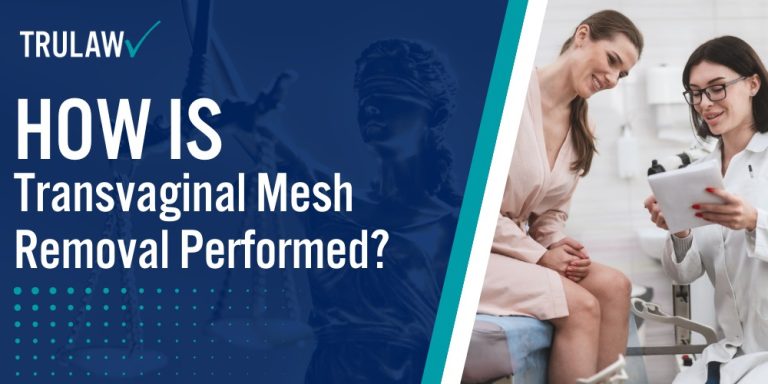Before undergoing transvaginal mesh removal surgery, patients typically undergo comprehensive pre-surgical testing and evaluations to ensure they’re properly prepared for the procedure.

These evaluations are important because mesh removal is a difficult procedure with success rates and complications varying depending on the type of mesh originally implanted and how long it has been in place.
Pre-Surgical Testing and Evaluations
Most surgeons require patients to stop smoking at least 6-8 weeks before surgery, as smoking can significantly impact healing and increase surgical complications.
Depending on individual health factors, the anesthesiologist may contact patients before surgery to ensure they’re healthy enough for the procedure.

The pre-surgical process generally includes:
- A detailed physical examination to assess the extent of mesh complications
- Urodynamic testing to evaluate bladder function and identify any urinary issues
- Cystoscopy or other imaging tests to determine if the mesh has eroded into the bladder or other organs
- Blood tests to check overall health status and rule out infection
- Urine culture to identify any existing urinary tract infections that need treatment before surgery
- Review of medications to identify those that may need to be temporarily discontinued (particularly blood thinners)
- An anesthesia consultation to determine the most appropriate anesthesia type based on medical history
Discussing Expectations and Recovery Timeline
Patients should understand that mesh removal surgery may not resolve all symptoms immediately.
While many women experience significant relief from pain, discomfort, and other complications, some symptoms may persist or take time to improve.
Setting realistic expectations is crucial when preparing for transvaginal mesh removal surgery.
During pre-surgical consultations, surgeons should clearly discuss:
- The likelihood of complete versus partial mesh removal (complete removal may not be possible if the mesh was placed using trocars or has significantly integrated with surrounding tissue)
- Potential complications specific to each patient’s situation
- Expected pain levels and pain management options
Patients should understand that mesh removal surgery may not resolve all symptoms immediately.
While many women experience significant relief from pain, discomfort, and other complications, some symptoms may persist or take time to improve.
The recovery process typically includes:
- Initial follow-up within 10-14 days to check incision healing
- Secondary follow-up at 3-6 weeks to assess overall recovery
- Final follow-up at 3-6 months to evaluate long-term outcomes
Patients should discuss with their surgeons how to prepare their home environment for recovery, including arranging for assistance with daily activities for the first few days after surgery.
For those traveling for specialized mesh removal surgery, accommodations should be arranged for at least 11-14 days to allow for the initial follow-up appointment before returning home.


